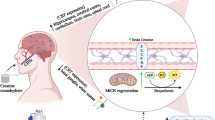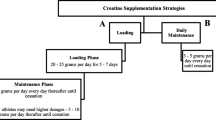Summary.
Background:
Extensive exercise may promote the formation of reactive oxygen species and subsequently contribute to tissue damage. A compound which can protect cells and tissues is vitamin E. The vitamin E radical, formed during the radical scavenging process, can be reduced by vitamin C resulting in a higher level of the vitamin C radical (semidehydroascorbate free radical). An increase of the vitamin C radical, however, is assumed to exert prooxidative effects.
Aim of the study:
To elucidate whether supplementation of vitamin E and exhaustive exercise lead to an increase of the vitamin C radical in human plasma.
Methods:
A placebo controlled, cross over study with 13 male volunteers was carried out. After an 8 day supplementation period with 500 I.U. D-α-tocopherol, the subjects performed two exhaustive treadmill runs. Blood samples were collected at rest, 0, 0.25, 1, 3, 24 and 48 h after exercise. Serum was separated and concentrations of D-α-tocopherol and ascorbic acid were determined by HPLC. Vitamin C radical levels in plasma were assessed by electron paramagnetic resonance (EPR).
Results:
Vitamin E and C both showed a tendency to decrease between 3 h and 24 h after exercise. Vitamin C radical level remained stable during the whole period. Neither vitamin E supplementation nor exercise had any influence on the plasma concentration of the vitamin C radical.
Conclusions:
Vitamin E supplementation under conditions of mild oxidative stress does not result in an increased vitamin C radical concentration.
Similar content being viewed by others
Author information
Authors and Affiliations
Corresponding author
Additional information
An erratum to this article can be found at http://dx.doi.org/10.1007/s00394-005-0550-2
Rights and permissions
About this article
Cite this article
Schneider, M., Niess, A.M., Rozario, F. et al. Vitamin E supplementation does not increase the vitamin C radical concentration at rest and after exhaustive exercise in healthy male subjects. Eur J Nutr 42, 195– 200 (2003). https://doi.org/10.1007/s00394-003-0414-6
Received:
Accepted:
Issue Date:
DOI: https://doi.org/10.1007/s00394-003-0414-6




